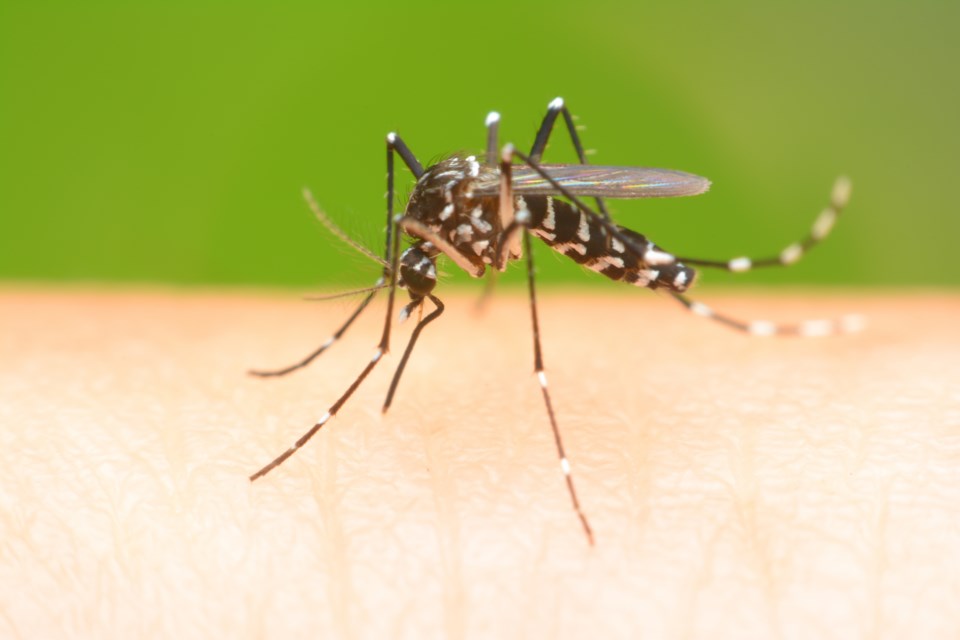An area researcher says 2018 was a bad year for mosquitoes, but a perfect storm of conditions this year is creating an even more ideal breeding ground for the nuisance insects.
Marcel Pinheiro teaches invertebrate zoology at University of Waterloo and conducts field research in Wellington County. He said the added moisture in the ground during this cool, wet spring has been ideal for breeding mosquitoes.
“Mosquitoes only need a relatively small amount of water to actually breed and hatch and complete their juvenile life cycle, where they are living in the water and then they emerge from the water as adult mosquitoes, ready to bite,” said Pinheiro. “Last year was bad and this year is even worse. It’s been such a wet spring and a long, drawn-out, soggy spring.”
"This year it's brutal," he added.
Mosquitoes eggs can be laid in just a few centimetres of water, said Pinheiro. Water-logged soil, high water and an extended thaw has meant more this spring, by his observations.
“There is lots of habitat for them,” he said. “Once it got a little bit warmer they were really able to take off.”
Wellington-Dufferin-Guelph Public Health has traps in the area where mosquitoes are collected, separated by species and counted, said Chuck Ferguson, manager of communications.
Ferguson said most mosquitoes are nuisance insects and wouldn’t be a public health concern if not for the fact a small percentage of them can carry West Nile Virus.
“Because a small percentage of a certain species carries West Nile, we do test for it and will carry out larvicide of water catchment areas in both Wellington and Dufferin County,” said Ferguson.
It’s too early to say, from a Public Health perspective, if it is shaping up to be a worse year for mosquitoes, said Ferguson.
“The evidence is really in the traps and that’s how we can determine if we have an overabundance of mosquitoes at any given year,” he said. “What we are monitoring is how prevalent the mosquito species is that carries West Nile.”
When enjoying the outdoors, Ferguson recommends taking some precautions.
“Wear light clothing, wear mosquito repellant and just take the general precautions and at dusk and dawn because they are coming out to feed,” he said.
Pinheiro recommends removing any standing water you find on your property.
“If you have anything on your property collecting any water — even a couple of centimetres — you want to dump that out and make sure it isn’t standing around for a few days, because that’s all it takes,” said Pinheiro.
One potential bright spot on an increase in mosquito populations is the effect it is likely to have further up the food chain for animals that rely on them as a food source.
“In water, those juvenile insects are going to be eaten up by fish, frogs and toads and all sorts of other animals,” said Pinheiro.
The adult mosquitoes are often a food source for song birds, bats and larger flying insects like dragonflies — animals Pinheiro said many people want to have around.
“Having this increase in the mosquito population is a pain in our backside, but it’s important in the ecology,” he said.
As for humans, we just have to put up with them.
“Sometimes my students will ask why we can’t wipe mosquitoes off the face of the earth — well, that’s a problem because there are a lot of things that eat them,” said Pinheiro.
